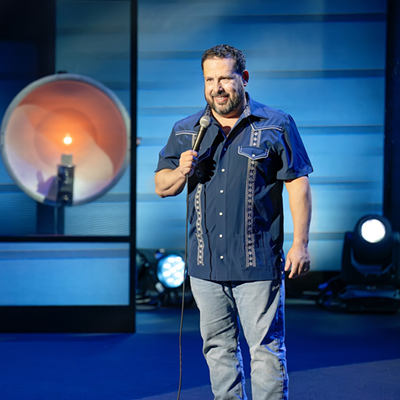Illegal immigration is one of those topics that everyone seems to have a strong opinion about. And sometimes, we get so caught up in the politics of people illegally crossing the border that we don't think about how many lives are lost in the desert every year.
Two University of Arizona journalism graduates are here to remind us of the human side of this hot-button issue.
Austin Counts and Devlin Houser (both of whom have been Tucson Weekly contributors) are hosting a benefit concert for their documentary, Dead in the Desert, at Sky Bar this Saturday, Aug. 4. Local tech guru Seth Webster also helped produce and edit the film.
Dead in the Desert documents how Pima County medical investigators attempted to identify and repatriate the bodies of two migrants found in June 2011—one in Arivaca, and the other on the Tohono O'odham Nation.
The film also shows how migrants prepare to cross the Arizona-Sonora border, offers a snapshot of a northern Mexican town that depends on migrants, and highlights a humanitarian-aid group that provides water stations for migrants crossing the desert.
Gabriel Sullivan, Carlos Arzate of American Android and DJ DirtyVerbs will perform at Sky Bar in support of the documentary.
Counts said Sullivan's music is featured in the film, and that it's "a nice touch to be able to have a local artist." He said he wanted the music, as well as the film's content, to be local, because Dead in the Desert is a "very local, organic film."
Happy-hour drink specials will be offered until midnight. Money raised at the concert will cover promotional costs and film-festival entrance fees so that the issue of migrant deaths can reach a wider audience.
"I think that, as longtime Tucson residents, we have a deeper understanding of these issues and how they impact people," Houser said. "Our goal is to educate the rest of the country and the rest of the world."
He said that although politicos in Washington endlessly discuss immigration policy, "it's pretty far removed. This is something that we live. This is reality."
Counts and Houser said that the most challenging part of making the film was traveling to Ohio to meet the family of the migrant found on the Tohono O'odham land. They said that they were able to give family members some much-needed answers about their relative's death.
"That was a challenge, emotionally, because I had seen the footage a million times ... through editing, storyboarding ... and it had sort of become an abstraction, to some extent," Houser said. He said that while he "knew intellectually" that they were covering the death of a real person, seeing the emotion on relatives' faces made the impact of what they had done sink in.
Counts described the film as a "100 percent journalistic piece," and said that he and Houser are not advocating for illegal immigration, but rather simply trying to inform the public about the hundreds of migrants who die in the desert every year.
The documentary was inspired by a journalism project Counts directed when he was at the UA called Another Side of the Border. Counts said "the complete lack of jobs" they found upon graduating was also a "huge factor in doing this film."
"This was very much so we could continue to practice journalism," Counts said. "It was a very long road we had to travel just to get this film made."








